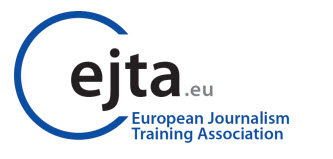The Tartu Declaration is EJTA’s competencies framework for students of Journalism, stating 10 main competencies, each with 5 qualifications. This detailed analysis of what journalism students should be taught serves as an international standard for Journalism education and accreditation and has been used as a benchmark by other organisations around the world, including UNESCO. It has been created by EJTA experts and is recognised by all EJTA members (in the application questionnaire).
The framework received its name when it was adopted by EJTA during the AGM 2006 in Tartu. It was revised in 2013 and 2020 and will be adapted to new teaching needs due to media and journalism developments in 2026-2027.
Tartu Declaration 2020
Preamble
Members of the European Journalism Training Association educate or train their students/participants from the principle that journalists should serve the public by:
- Providing an insight into political, economic, socio-cultural conditions,
- Stimulating and strengthening democracy at all levels,
- Stimulating and strengthening personal and institutional accountability,
- Stimulating and strengthening an open and respectful public conversation,
- Strengthening the possibilities for citizens to make choices in societal and personal contexts,
While:
- Feeling responsible for the freedom of expression,
- Respecting the integrity of individuals,
- Being critical of sources and independent of vested interests,
- Using customary ethical standards.
Therefore, these are the competencies that we should teach Journalism students:
1. The competence to reflect on journalism’s role in society
1.1 understand the role of journalism for democratic society
1.2 know the legal and ethical framework of journalism
1.3 to be able to reflect on the future of journalism
1.4 understand the values that underlie professional choices
1.5 to be able to link the local with the national and the global
2. The competence to find relevant issues and angles
2.1 know current events and their context
2.2 know what is relevant for various audiences
2.3 be able to identify what the public is interested in
2.4 know how audiences use different media
2.5 be able to identify newsworthy issues on the basis of in-depth research
3. The competence to organise journalistic work
3.1 be able to make a realistic work plan
3.2 be able to work under pressure
3.3 be able to adjust to unforeseen situations
3.4 be able to facilitate diverse participation in debate
3.5 be able to work within budget limits
4. The competence to gather information swiftly
4.1 have a wide general knowledge as well as specialised knowledge in a field
4.2 be able to identify multiple perspectives on an issue
4.3 be able to evaluate sources
4.4 be able to ensure security in the process of information gathering
4.5 be able to use contributions from the public
5. The competence to select the essential information
5.1 be able to distinguish between main and side issues
5.2 be able to select information on the basis of reliability
5.3 be able to select information on the basis of relevance for the audience
5.4 be able to select information in accordance with the media platform
5.5 be able to interpret the selected information
6. The competence to present information in an effective journalistic form
6.1 understand how people receive and process information
6.2 have an outstanding linguistic competence
6.3 have an outstanding audio-visual competence
6.4 be able to use different types of story-telling techniques
6.5 be able to present content in effective formats
7. The competence to account for journalistic work
7.1 be able to take responsibility for the impact of one’s work
7.2 be able to take responsibility for the choices made during the process
7.3 have a clear idea of the required quality of journalistic products
7.4 be able to evaluate own work
7.5 be willing to take criticism constructively
8. The competence to cooperate
8.1 have good social skills
8.2 be reliable
8.3 be able to present ideas convincingly
8.4 be able to find solutions cooperatively
8.5 show insight into roles and relations within a team
9. The competence to act as a journalistic entrepreneur
9.1 understand the economic conditions underlying the profession
9.2 be able to identify the needs of a target audience
9.3 be able to develop innovative formats/products/processes
9.4 be able to build a realistic business model
9.5 know the practical aspects of being an entrepreneur
10. The competence to contribute to the development of the profession
10.1 be able to analyse a complex professional problem
10.2 be able to define a relevant research question
10.3 be able to use current methods of data collection
10.4 be able to use current methods of analysing and processing data
10.5 be able to provide workable solutions for complex practical issues
